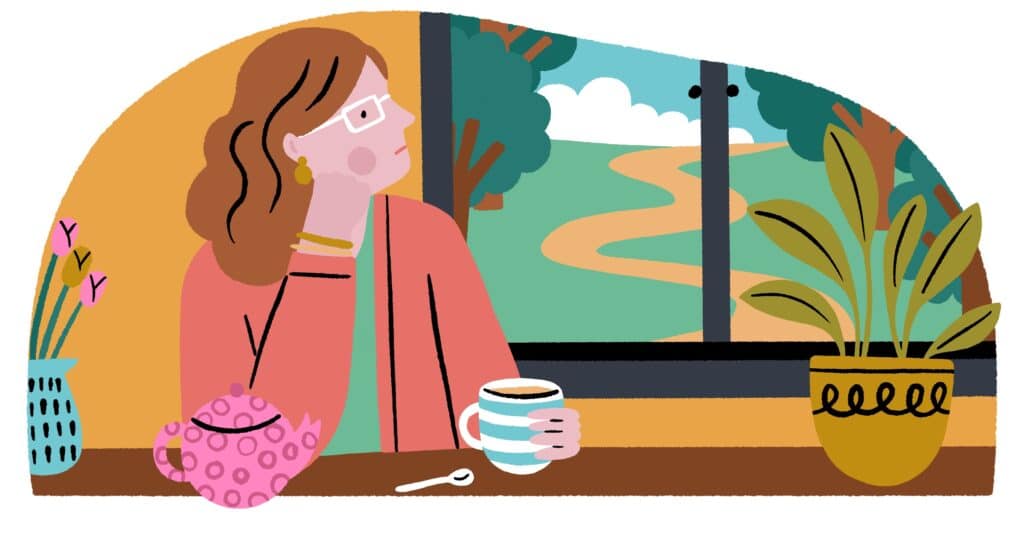
By Beth Levine
You are a 50-something-year-old woman who just can’t seem to get anything done. Your office is a catastrophe, you haven’t completely unpacked from that trip a month ago, and you still haven’t mailed your son’s birthday present. (You know, that birthday that was last week?) And let’s not even discuss the backlog of unreturned emails. People tell you just to work harder, but you know that you are running as fast as you can. So what gives?
ADHD Is Not Boys-Only
The answer just might be ADHD.
Think ADHD, and you probably picture the wiggly little boy for whom circle time in kindergarten is akin to torture. What’s that got to do with you? The truth is ADHD affects both genders and all ages — about 8% of children and 4.4% of adults. Boys (13%) are more likely to be diagnosed with ADHD than girls (6%). (More about that data later.)
According to a World Psychiatry study, only 25% of adult ADHD cases are diagnosed in childhood. Men are four times more likely to be diagnosed than women, but that doesn’t necessarily mean that men are more apt to have it. Women may be almost equal in numbers, but they just haven’t been diagnosed or have been misdiagnosed. Of that 25% diagnosed as adults, 5% of the women typically aren’t diagnosed until their 30s and are far less likely than men to get professional help.
Women Aren’t Getting Diagnosed, or Getting Proper Treatment
The experiences, symptoms, perception and treatment of each gender and group within genders can vary widely. The experiences of more mature women with the disability — those 50 and older — have not been as explored and documented as other age and gender populations. That means many women struggle on undiagnosed, not having a clue that the problem isn’t that they are stupid or depressed or incapable.
“There is an unconscious bias, based on lack of training in health and education professionals, that females don’t get ADHD. So when they see symptoms, they misinterpret them,” says Kathleen G. Nadeau, PhD, founder/clinical director of The Chesapeake Center — ADHD, Learning and Behavioral Health in Bethesda, Md.
Nadeau is the author of more than a dozen books about ADHD, including her most recent, Still Distracted After All These Years, which offers help for older adults with ADHD.
In women with ADHD, the most common diagnoses are depression or anxiety, while their ADHD is overlooked,” Nadeau says. In the classroom, girls with ADHD are dismissed as being just average students, or silly girls that talk too much.
Nadeau adds: “ADHD is one of the four most common adult psychiatric disorders and yet the experts are still not properly educated about it.”
Therefore, a girl may not get referred for help when she is a child or a teenager, and women that seek help are often misdiagnosed with other disorders. Women are often diagnosed late, when they finally seek help on their own and are fortunate enough to find a mental health professional that understands adult ADHD.
Also, Esme Fuller-Thomson, PhD, professor and director of the Institute for Life Course and Aging at the University of Toronto’s Factor-Inwentash Faculty of Social Work, notes: “Women with ADHD often blame themselves for their ADHD symptoms, so they don’t reach out.”
Women’s Symptoms Are Different Than Men’s Symptoms
ADHD in women tends to present with symptoms that are different than some have come to expect. As a result, their ADHD may be missed or misdiagnosed, says Patricia Quinn, MD, a developmental pediatrician in Washington, D.C. and co-author (with Nadeau) of Understanding Women with AD/HD.
“For males, hyperactivity may manifest as motor activity or impulsivity. They can’t sit, they’re running around, they are constantly fidgeting or making poor decisions,” Dr. Quinn says. “For females, they may be distractible, inattentive or restless. They might be twirling their hair or talking excessively. A health care professional or psychologist may not see hair twirling or hyper-talkativeness as a motor activity, and might consider it a symptom of anxiety.
Adds Dr. Raafia Muhammad, ADHD Online’s clinical division chief and interim chief medical officer: “For women, it can present as a mental hyperactivity, and can be described as having too many tabs open in your mind.”
The result, says Dr. Quinn: “Women may be told that they are depressed or anxious and prescribed medications for these conditions. But their ADHD remains undiagnosed and, subsequently, not addressed. As a result, these women may take the prescribed anti-depressants or anti-anxiety meds and they feel emotionally better. But, in their words — they are still not getting anything done.”
The Hormone Factor
“For ADHD to be diagnosed, an individual must have symptoms present before the age of 12,” says Dr. Quinn. “Women with ADHD will have some symptoms of the disorder during their early years even if they are masked, unrecognized or mitigated by high IQ, hard work or coping strategies.”
There is no such thing as “late onset ADHD,” Dr. Quinn says. However, women may not be diagnosed until years later, when life exceeds their ability to compensate or cope.
What often pushes women “over the edge” to impaired functioning is the declining estrogen that begins during perimenopause and into menopause, resulting in decreases in dopamine and serotonin levels. This decrease in those neurotransmitters causes ADHD symptoms and mood to worsen. “Men do not have these estrogen decreases, so we don’t see this worsening of symptoms as they age,” Dr. Quinn says.
Women Tend to Fare Worse Than Men
The good news: A new study published in the International Journal of Applied Positive Psychology found 42% of adults with ADHD were “in excellent mental health.”
The bad news: Women — of all ages — were less likely to be in that group.
“The finding that female respondents were less likely to be in flourishing mental health highlights the specific vulnerabilities among women with ADHD,” co-author Andie MacNeil, a recent Master of Social Work graduate from the University of Toronto, says in a news release about the study. “This aligns with other research that has found higher rates of depression, anxiety and suicidality among women with ADHD, which may partially explain this gap in mental well-being.
Fuller-Thomson, also a co-author of the study, adds: “Women with ADHD are more likely than men with ADHD to internalize their emotions, which might result in depression, anxiety and self-harming behaviors. Also, society is more tolerant of ADHD-related behaviors in men in comparison to women.”
Retirement Hits Particularly Hard
For older women with ADHD, retiring from the workforce can present a unique challenge. “They lose the structure of a daily schedule, a purpose, a social life,” Nadeau says. “It can be very isolating and daunting because they are now in charge of creating and following a schedule, which is the very thing they have trouble doing.”
Breaking the Cycle
If you think ADHD may be interfering with your life, first ask yourself these questions:
- Do I have trouble organizing? Or just getting started on a task?
- Does it take me longer to get things done than most people?
- When I try to accomplish something, do I hyperfocus on one detail, to the detriment of the larger picture?
- Do I feel like I work as hard as everyone else but seem to accomplish less?
- Have I been told that I talk excessively?
- Do I have a familial history of ADHD?
- Do I tend to blurt out inappropriate things? Have a hard time reading the room?
- Have I recently retired from work or experienced an empty nest? (Women with ADHD sometimes flounder at these critical times because all their structure and support systems have gone, with nothing left in to replace them.)
There Is Help — Don’t Take No for an Answer
Women with ADHD often don’t seek help because they internalize that they are just not intelligent or they feel ashamed, says Dr. Quinn. But ADHD has nothing to do with aptitude or smarts. There are coping mechanisms and medications to let you live your fullest life.
If your internist or adult psychiatrist brushes you off or indicates you are just depressed, seek care from a child psychiatrist who also sees adults and may be more attuned to the syndrome. Interview them and ask if they have had experience working with women with ADHD. A competent doctor can help you by:
- Putting you on the right medication. There are stimulants, non-stimulants and supplements, depending on your particular needs and overall health.
- Discussing hormone therapy. Some ADHD medications don’t work well with people with low estrogen. Also, increasing estrogen levels can decrease the cognitive impairments that naturally come with menopause.
- Teaching you coping strategies. Medication alone won’t do it; you need to learn how to address and target your symptoms.
Find a Support Group
Talking with other women who have ADHD can make you feel understood and break that feeling of isolation. Also, what better way to learn new coping strategies than from someone who has been there? Check out these support groups for adults offered by the non-profit organization Children and Adults with Attention-Deficit/Hyperactivity Disorder, or CHADD. Reddit also offers this subgroup of ADHD Women.
Nadeau sings the praises of attending group therapy. “Women with ADHD feel such relief when they’re in a room full of other women with the disorder,” she says. “They can stop hiding, talk about their experiences, and know that the others will understand and not judge. I think one of the most healing experiences you can have is understanding and acceptance from other females.”
Life Doesn’t Have to Be This Hard
ADHD doesn’t have to hold you back. Take steps now, because you are never too old to learn how to make your life better.






